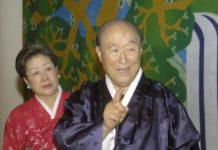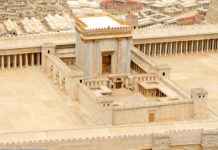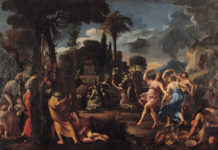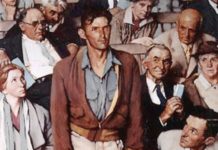In the Exposition of Divine Principle historical analysis, the Messiah comes on the foundation of “the Third Reformation” that occurs during “the period of maturation of politics, economy and ideology,” the last of three periods of preparation for the Messiah.
Each of the three periods has two components, one external, the other internal. The external component of first period is the Renaissance. In ways both good and bad, it created the environment for the internal component, the Reformation.
The maturation of politics, economy and ideology is preparation for the Messiah.
In the second period, the Enlightenment likewise created the environment for Christian movements such as Methodism, Quakerism and Puritanism, the foundation for pluralistic, Christianity-based “Abel-type democracy.”
In the third period, “the third renaissance,” the external component consists of state socialism and communism, driven by Marxist ideology. This ideology overpowers the Christian worldview of the second reformation, and thus we witness Christian standards disappearing. As the Exposition states, “the state of today’s Christianity desperately calls for a third reformation.”
THE THIRD REFORMATION HAS TWO STEPS
True Father is the seed of the third reformation. He took a two-step approach, as outlined in the Principle. First, “the democratic world on God’s side will triumph in the ideological war and bring the communist world on Satan’s side to its knees.” Second, “the two worlds will unite into one Kingdom of Heaven on earth under God.”
Wait a minute, does that make sense? God’s side wins over Satan’s side, and then the two unite? By the Principle, it makes perfect sense.
The first step follows the Cain-Abel ethic. Abel exalts God and sacrifices for Cain, until Cain voluntarily surrenders and recognizes Abel as God’s representative. True Father described Abel’s path as follows:
At the sacrifice of the nation we must be able to save the whole world.
“I was in a labor camp, the worst labor camp you could think of. I was in a Communist prison, for many years in an unbearable situation, and I was in hunger. I was in poverty …I persevered and was patient. I forgot misery. I forgot my suffering. …we must receive and digest persecution …on the individual level, and at the sacrifice of ourselves we must save our family, and at the sacrifice of the family we must be able to save our clan and nation, and at the sacrifice of the nation we must be able to save the whole world.”
What is the ethic of the second step? That is Cheon Il Guk—two become one. To be continued…
(Citations: Exposition of Divine Principle pp. 364-5; “The Path That We Tread,” August 25, 1974 pp. 3-5; “Let Us Turn This Historical Moment into Great Victory,” September 8, 1974, p. 6. The painting of the Jacob-Esau encounter is by Peter Paul Rubens.)








The peace process by absolute constitutional values – religious freedom bound by an interreligious Congress … Unity, Justice, Tranquility … to secure the blessing for ourselves and Posterity.